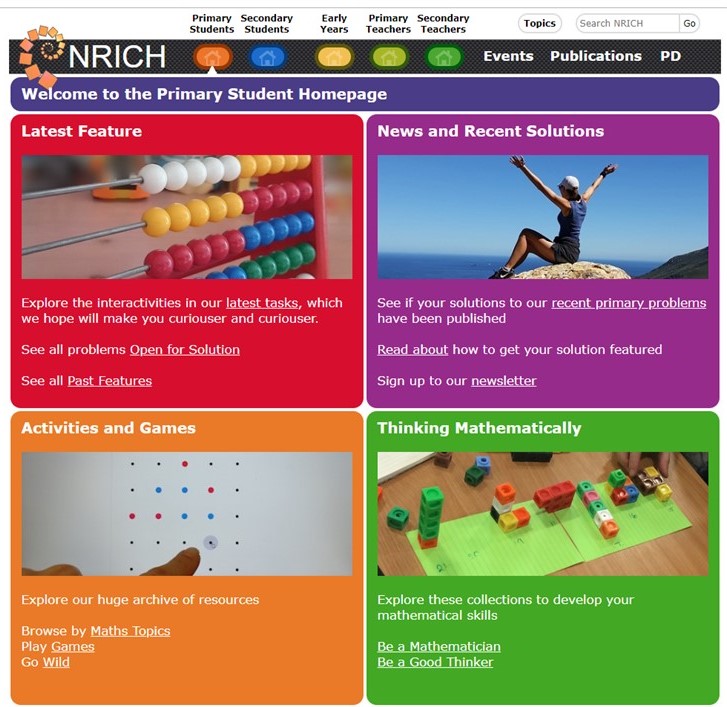Mathematics
Our curriculum
To learn more about maths in EYFS, click here (this will take you to the Reception section of our website).
From Year 1 to Year 6, we use White Rose Maths as the foundation of our maths lessons. This exciting mastery-based approach, recommended by the DfE, is designed to support every child. It follows the concrete, pictorial, and abstract (CPA) methodology.
Each lesson is thoughtfully structured into sections that encourage discovery, sharing, collaboration, practice, and reflection. Children solve problems daily using concrete resources such as multi-link cubes & dienes blocks, pictorial representations, and abstract thinking, fostering deeper understanding and engagement with mathematical concepts.
At the core of White Rose Maths is the belief that every child can achieve and succeed as a mathematician.
The programme includes colour-coded workbooks for each topic, along with a suite of online teaching tools to support teachers in delivering dynamic and effective lessons.
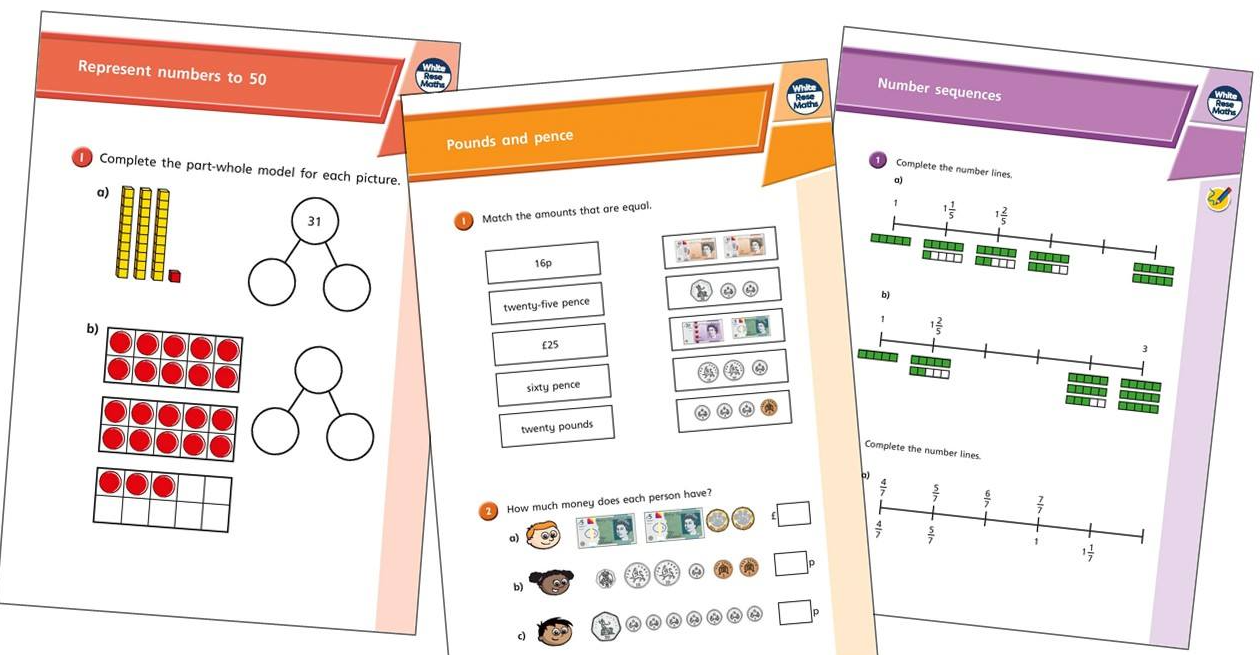
Alongside White Rose Maths lessons, we have a fluency review. This is usually done weekly and covers the key areas of maths that have been taught.
Where gaps are identified, a personalised learning programme is used to address this. This may be done in school and often it is given as homework so that parents and carers can support where it is most needed.
Addition and Subtraction
Confidence in maths is closely tied to the recall of basic arithmetic, and the best way to improve recall is through consistent practice.
When children have basic number facts (e.g., 6 + 5 = 11, 15 - 7 = 8) stored in their long-term memory, it frees up their working memory to focus on learning new concepts such as fractions or long division. However, if they still need to work out these basic facts, tackling new concepts becomes significantly more challenging.
To support this, we utilise tech platforms like Numbots (see below), which allow children to practise at a level that suits their individual needs. Additionally, we incorporate a "paper and pencil" approach to practising arithmetic, which can easily be replicated at home. We recognise that many families aim to limit their children’s screen time, making this alternative approach particularly appealing.
A guide to progression and expectations:
Please note that children learn at different rates, which is why we have Y3 as a year to embed quick recall of add and subtract facts to 20. We generally move children on to the next level when they are answering error-free within a set time (usually 2-3 minutes).
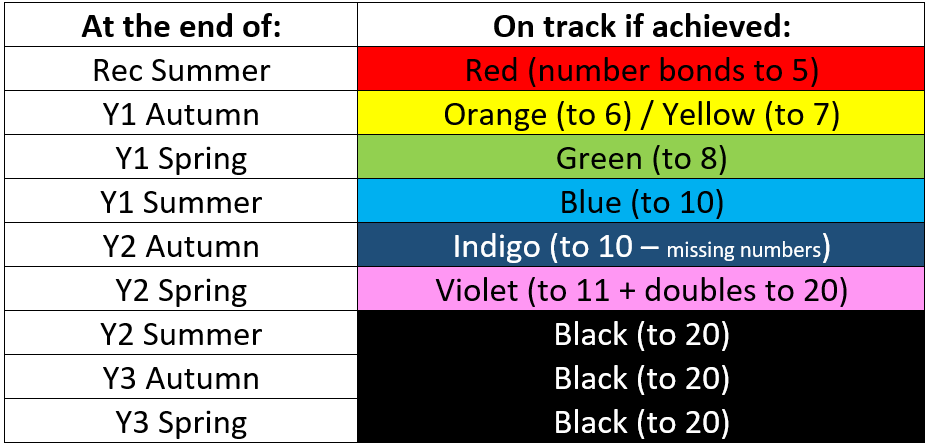
Below are the practice sheets we use. Feel free to download and print. Alternatively, ask your child's teacher for a copy.
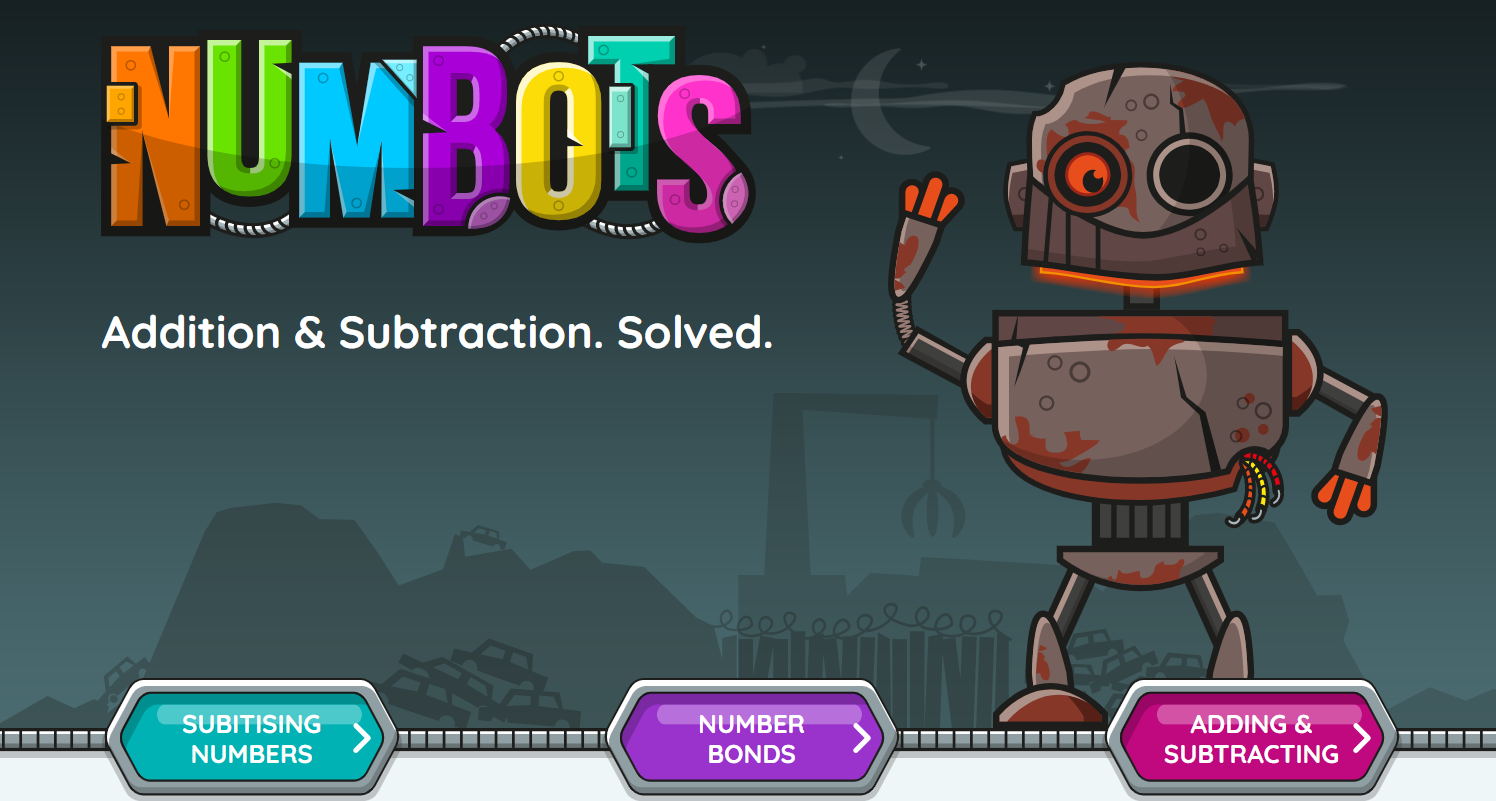
We also use the online tool Numbots.
NumBots is all about every child achieving the “triple win” of understanding, recall and fluency in mental addition and subtraction, so that they move from counting to calculating.
Every child from Year 1 to 6 has a login and can work through each challenge at their personalised level. This resource is primarily used in Y1-3. Children can also login at home.
See video guide for families below.
Multiplication and Division
The recall of times table facts is absolutely essential for building confidence in maths, especially within the Year 5 and Year 6 curriculum. These year groups focus heavily on topics such as fractions, decimals, percentages, and multi-step calculations. If children are still relying on their working memory to calculate times table facts, it becomes significantly more challenging for them to tackle these complex concepts.
Our paper and pencil based approach helps to ensure children stay on track. If children do need extra practice at home, the teacher will give a copy of the same practice sheet that we use in school to use at home. Daily practice is essential.
Below are the progress 'milestones' that we want all children to reach:
|
At the end of: |
On track if achieved: |
|
Y2 Spring |
Cork |
|
Y2 Summer |
Pine |
|
Y3 Autumn |
Pine |
|
Y3 Spring |
Pine |
|
Y3 Summer |
Birch |
|
Y4 Autumn |
Willow |
|
Y4 Spring |
Oak |
|
Y4 Summer |
Walnut |
|
Y5 & Y6 |
Walnut |
Below are the levels and what they include. You can download and print by clicking on the links buttons.
|
|
multiplication facts included: |
Number of questions |
|
|
x10, x2 |
20 |
|
|
x10, x2, x5 and facts up to 5x5 |
28 |
|
|
x10, x2, x5, x3, x4 |
36 |
|
|
x10, x2, x5, x3, x4, x9 |
40 |
|
|
x2-x10 |
45 |
|
|
x2-x12 (x10 removed) |
45 |
|
|
x2-x12 & division/missing number |
45 |
|
|
2 digit multiplication and division |
40 |
|
|
2 digit multiplication and division |
40 |
You can help at home by:
- practising times tables
- practising the multiplication test booklets given for homework
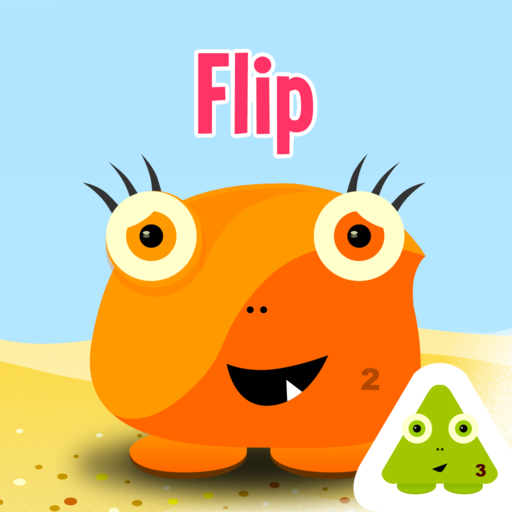
- reviewing errors that your child makes and spending time on them
- using apps e.g. Squeebles flip multiplication (developed in partnership with St Margaret’s and based on our test approach)
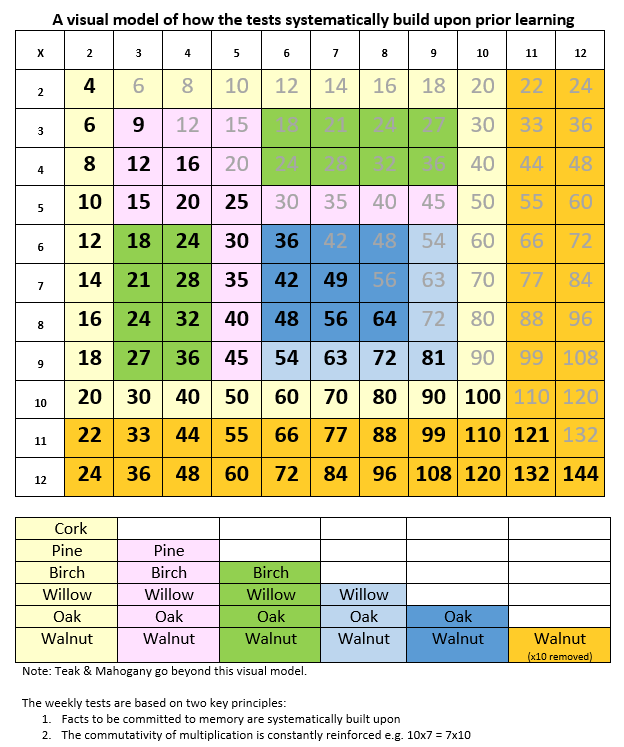
We are also using the online tool Times Table Rockstars.

Times Tables Rock Stars is a carefully sequenced programme of daily times tables practice. The online format is particularly effective as the algorithm within the programme responds to errors and sets the challenge level accordingly. This makes the process of learning times tables very personalised. It's also really motivating for children.
Every child from Year 2 to 6 has a login and they generally do a little bit of daily practise at their personalised level. Children can also login at home.
See video guide for families below.
Problem solving & reasoning
We put a strong emphasis on problem solving and reasoning from Reception through to year 6. We use a range of manipulatives (actual objects that children can see, move, reorder etc.) all the way through the school. This provides children with opportunities to collaborate, reason, explore and also provides a clear structure for children, teachers and families.
Throughout the year, we also build in opportunities for mathematical investigation, active maths and applying maths across the curriculum.
My child is confident and able. How can I challenge them at home?
If your child is whizzing through the times table tests and addition tests, and can do calculations quickly without pen and paper, s/he is demonstrating good mathematical fluency. Doing more and more of the same (with bigger numbers) will improve this fluency but will not give a deeper understanding and mastery of maths.
In the same way, a child with good handwriting will develop their fluency if they practise handwriting. It will not make him a better writer of fiction, poetry or reports.
Our advice is to find games, puzzles and activities that deepen mathematical understanding and challenge your child to use trial and improvement, work systematically, pattern spot, visualise and apply logical reasoning.
Nrich is a great, free and regularly updated resource that is based on sound research and developed by the University of Cambridge. We recommend you have a look at this site as a good starting point for challenging your child at home.


